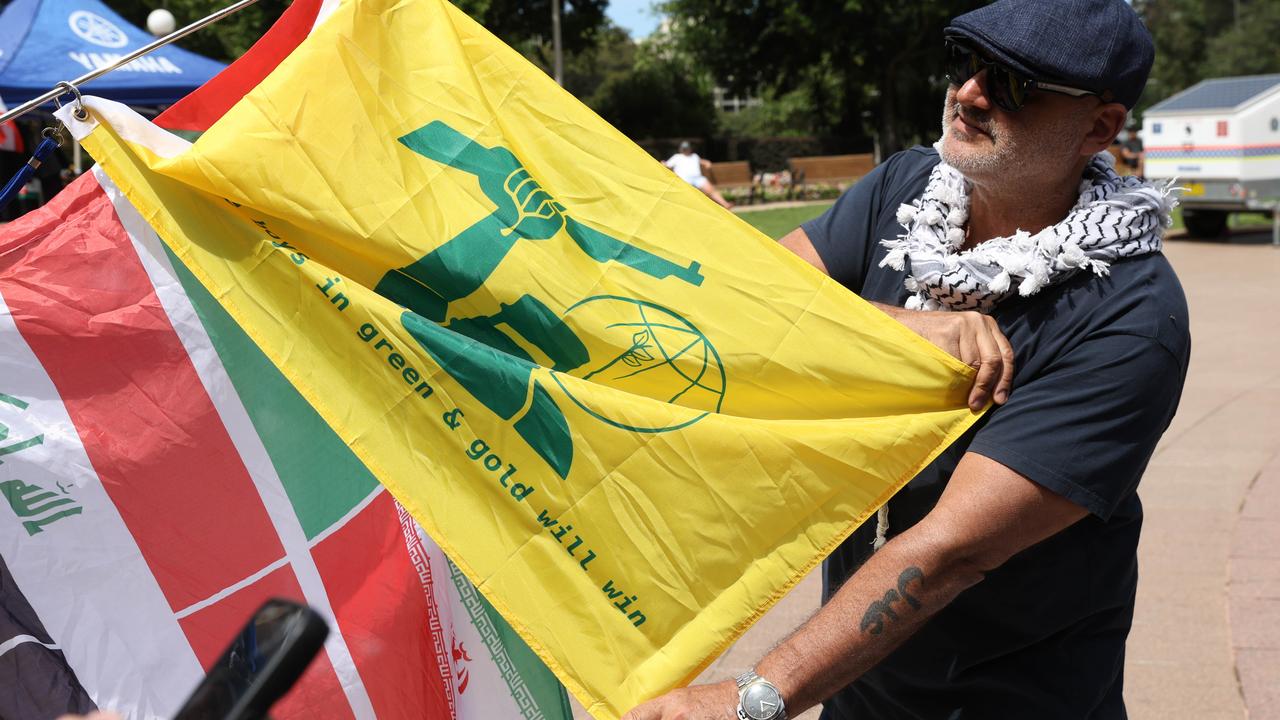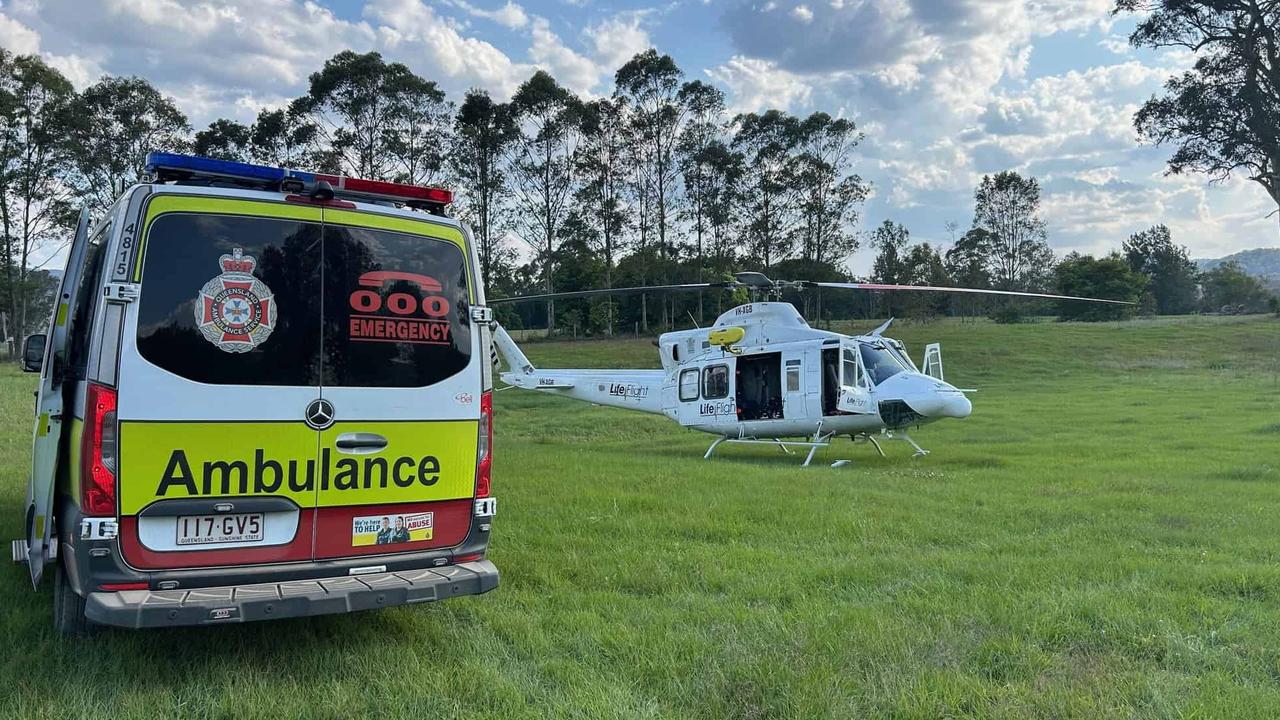PM says interstate travellers don’t need to be tested after calling for use of masks
The federal and Victorian governments are lobbying other states to abandon strict testing rules for travellers. Here’s why.
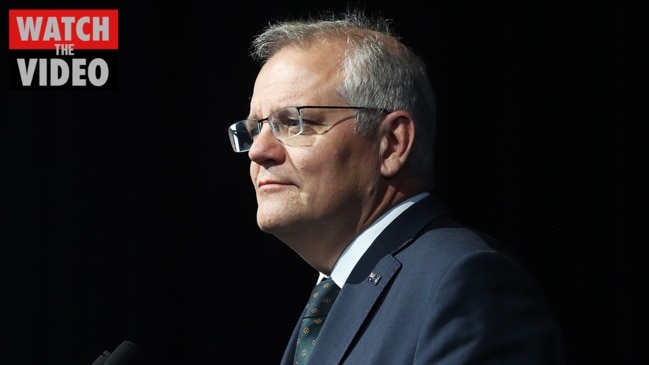
National
Don't miss out on the headlines from National. Followed categories will be added to My News.
The federal and Victorian governments have joined forces to lobby Queensland, South Australia and Tasmania to abandon strict testing requirements for travellers, which are causing massive queues at Victorian clinics.
Speaking after Wednesday’s national cabinet meeting, Scott Morrison said there was strong health advice that Australians crossing state borders did not need to be tested.
About a quarter of people lining up for tests in Victoria – in some cases for up to five hours – are doing so to meet interstate entry requirements.
But the Prime Minister said only about one in every 1000 travellers was testing positive to Covid, compared to 20 out of every 1000 close contacts.
The national medical expert panel has now been tasked with delivering advice to the states on appropriate testing rules, with Mr Morrison saying the existing settings had caused “terrible queues and long waits”.
“This is putting unnecessary pressure on the testing system,” he said.
“That needs to get sorted and I’d like to see that get sorted as soon as possible.”
Victorian Covid commander Jeroen Weimar said it was not “not a highly productive way to use a PCR testing system”, especially as it meant potentially infectious people were waiting in queues and mixing with asymptomatic people getting tested for “bureaucratic reasons”.
“We hope to move to a more sensible arrangement in the very near future,” he said.
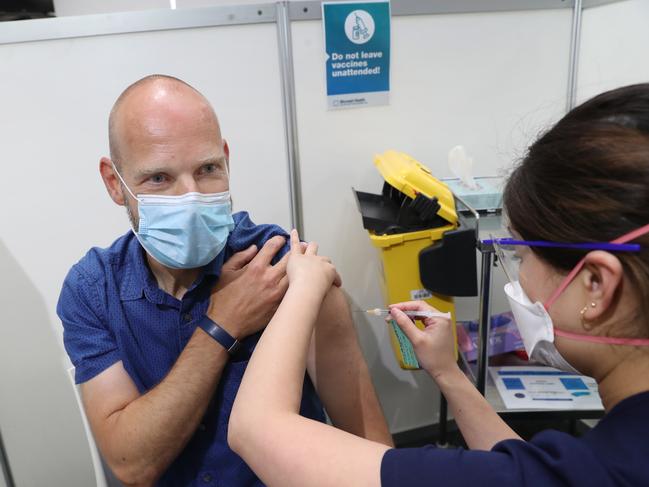
Mr Morrison said “the very least (the states) could do” was accept rapid antigen test results to reserve PCR testing capacity for Covid contacts and people with symptoms.
The federal government is also considering expanding free access to rapid tests, which are sent out for free to households in other countries including the UK and the US.
Mr Morrison said there were “options we’ll be considering in this space”, but he flagged that the commonwealth needed to prioritise its resources for measures that had the greatest impact.
The national cabinet also considered advice from the medical expert panel to enforce the use of masks in indoor settings.
The Victorian government is now deciding whether it will mandate masks and where, with changes likely to cover hospitality and major events.
The Prime Minister said masks were “highly recommended” in public indoor spaces.
Federal chief medical officer Professor Paul Kelly agreed, as he said Australians needed to “learn to live” with the new Omicron variant.
Only one person is currently in hospital because of Omicron on our shores.
Prof Kelly said authorities were closely considering its potential impact on the health system, as case numbers overseas doubled every two to three days.
Mr Weimar warned Omicron was “a very significant threat to our state and healthcare system”.
Mr Morrison said health workers were “in a strong position but of course they’ll be tested”. “We are well prepared for Omicron but we are not taking it anything other than very seriously,” he said. “Australia is arguably better positioned to deal with this than almost any other country in the world.”
The national cabinet will meet again in a fortnight, when it will also consider advice from the medical expert panel on standardising the approach to casual contacts across jurisdictions.
In more developments, NSW Premier Dominic Perrottet said free rapid antigen tests would be mailed to households and QR code check-ins would be brought back for supermarkets and restaurants to help free up testing clinics for “people who really need it”.
WEARING MASKS COMMON SENSE: PM
The Prime Minister has urged Australians to wear masks in indoor public settings as Covid-19 cases rise across the nation.
But there will no mandate for mask use – instead he urged Australians to act sensibly, as mask use was “strongly recommended”.
Mr Morrison joined state and territory leaders on Wednesday in an emergency national cabinet meeting to discuss the growing Omicron cases across the country.
Following the meeting, which was held virtually, Mr Morrison said the National Cabinet had agreed to move forward on “three areas”: public health social measures, Australia’s vaccination program and TTIQ (test, trace, isolate and quarantine).
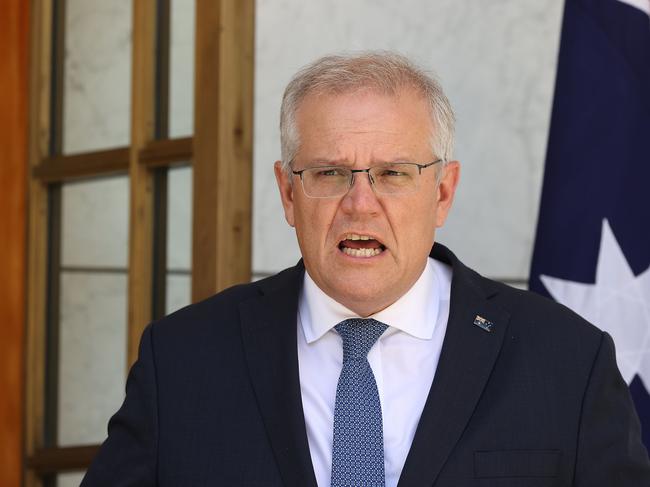
The Prime Minister said mask use and whether or not it was mandated was not a matter for the Federal Government.
“Mask wearing in indoor spaces in public areas is, of course, highly recommended, whether it’s mandated or not. That’s what we should be doing in the same way as we go into the summer season (and) people will be slapping on their sunscreen. There’s no rule or requirement to do that – but it is strongly recommended health advice (so mask use) is in the same category.
“And so Australians have common sense and they know what they need to do to protect their own health” he said.
Australia will introduce a new national definition of close and casual Covid contacts, but details will not be known until next month.
“We cannot have different rules in different places about what a close contact is and what a casual contact is,” he said.
“There is even an argument which says there shouldn’t be any requirements to have a casual contact definition at all when you’re dealing with such a high volume of cases.”
Mr Morrison said an expert medical panel would be asked to give recommendations for a clear definition in the next fortnight.
The Prime Minister also said how the role of QR codes would change had also been discussed.
“In some states with low cases they will continue to be using them for contact tracing,” he said.
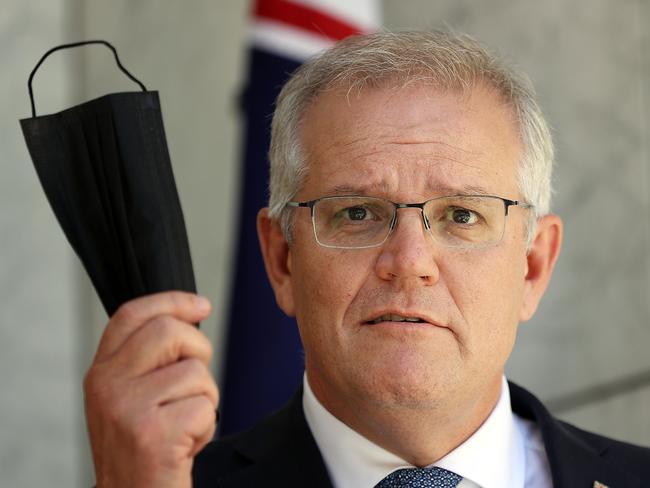
“But in states which have very high case numbers, well that’s not a realistic proposition, but it continues to provide a very helpful role to help in cases with high numbers of cases for people to self manage or self regulate their own Covid responses.”
He said National Cabinet had agreed to reconsider testing requirements for interstate travel to help avoid the “terrible lines” of people waiting to get test “we have all seen in recent days”.
In a change to the booster program, Mr Morrison said GPs and pharmacists would receive $10 extra from the federal government for administering the booster shot.
State-run vaccination hubs would also be reopened to help with the rollout, he said.
Mr Morrison said advice was still being sought from ATAGI on where to prioritise boosters and ATAGI would determine the interval between the second dose and the booster shot.
The PM said the booster decision would be made by ATAGI and not himself or the state and territory leaders, saying there were indemnity issues at play.
When it comes to testing, Mr Morrison said there needed to be agreement across the country on the definition of a casual contact.
“One thing we agreed today is we are not going back into lockdowns … we don’t want lockdowns,” he said.
Mr Morrison said Omicron presented another “new challenge, but we have faced so many challenges already during the course of this pandemic”.
“We are taking Omicron very seriously, as you would expect us to, but at the same time we are confident that we will be able to continue to ensure we can face down the most recent challenge, but it does require us to make a number of responses that we have been working through today,” he said.
Earlier, one of Australia’s former highest ranking medical professionals slammed the person responsible for leaking “worst-case scenario” Covid-19 modelling.
Former deputy chief medical officer Nick Coatsworth labelled the leak of the Doherty Institute’s extreme predictions to national cabinet “without context” a “gross injustice to the Australian people”.
It came as Mr Morrison and his chief medical officer downplayed the institute’s warning that cases could hit 200,000 a day by the end of January, describing it as an “extreme” scenario.
Asked about the modelling, which was released ahead of Wednesday’s national cabinet meeting, Mr Morrison told Seven’s Sunrise: “The modelling that has been reported is a very unlikely, extreme case scenario that assumes that nobody does anything, nobody gets boosters, there are no changes that take place, no one exercises common sense.
“We saw similar numbers at the start of the pandemic that were never realised,” he told Sunrise.
“The chief medical officer and I just want to assure people that those sorts of numbers are not what we expect. They are extreme scenarios.”
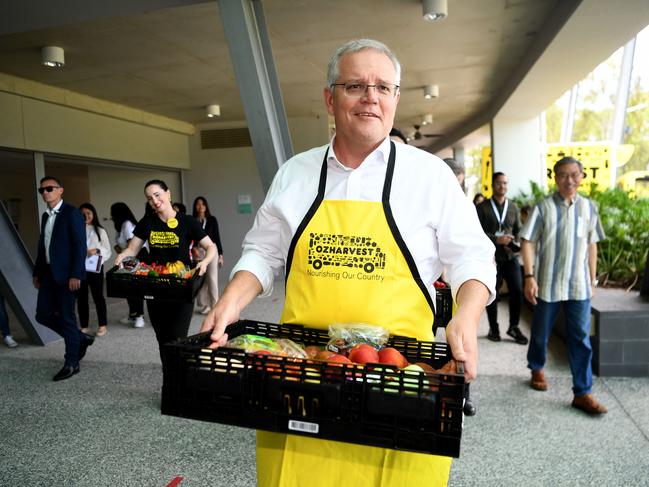
The modelling assumes only baseline public health safety measures are in place and that Omicron causes equally severe disease as the Delta strain.
A hard lockdown could suppress Omicron by the end of January, assuming 60 to 80 per cent of the population received a third dose by then.
“Looking at the impact of increasing uptake over time, a rapid booster program would likely enable control with minimal public health safety measures by end of March,” the modellers reportedly wrote.
“The epidemic peak could be delayed with public health safety measures until the boosters kick in, allowing the program to have greater impact.”
Mr Morrison said that in addition to ensuring people got their booster dose, Australians should approach Covid-19 like protecting themselves from the sun.
“It’s like wearing sunscreen and a hat … wear a mask indoors in public areas, wash your hands,” he said.
NEW MASK RULES DUE TO QLD SURGE
Queensland has announced new mask-wearing rules for cinemas and hospitality venues as the state’s Covid caseload continues to surge into uncharted territory.
There were 186 new Covid cases recorded ahead of Wednesday’s emergency meeting of national cabinet – a new daily record for the state
Just one person – who has a number of pre-existing conditions – is in hospital requiring significant care for Covid.
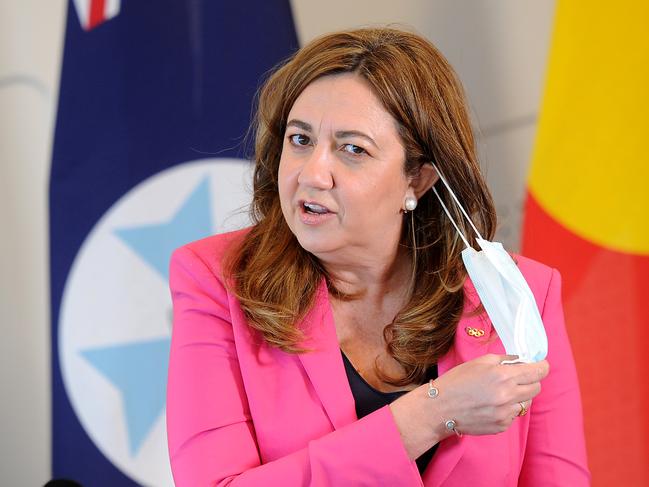
Premier Annastacia Palaszczuk also announced face masks would be mandatory in cinemas and theatres, and for hospitality staff, from 5am on Thursday.
Masks are already mandatory in supermarkets, shops, on public transport, and in rideshares.
“This is not very onerous,” Ms Palaszczuk said.
“We have spoken to the industry and to the unions. They understand why this is necessary.
“Essentially we don’t want to have all of our cafes and restaurants going down because of the Omicron variant.”
Of the 186 new cases, 177 were under investigation.
Wednesday’s case numbers are a marked increase on the 86 infections recorded on Tuesday and a continuation of the expected surge following the reopening of borders last week.
NSW RECORDS 3763 CASES, VIC HEALTH CHIEF WARNING
NSW reported 3763 new Covid-19 cases on Wednesday, as the state continues to smash its daily record for new infections.
Two people died with the virus in the 24 hours to 8pm on Tuesday.
There are now 302 people in hospital with Covid, 40 of them in intensive care.
Of the population aged over 16, 93.4 per cent are now double-dose vaccinated while 94.9 per cent have had at least one shot.
Victoria has recorded 1503 new Covid-19 cases as health authorities advise Victorians about how to celebrate Christmas in a Covid-safe way.
Six more Victorians died following a Covid diagnosis in the past 24 hours.
There are 394 people in Victorian hospitals with the virus, 70 in intensive care and 41 on ventilators.
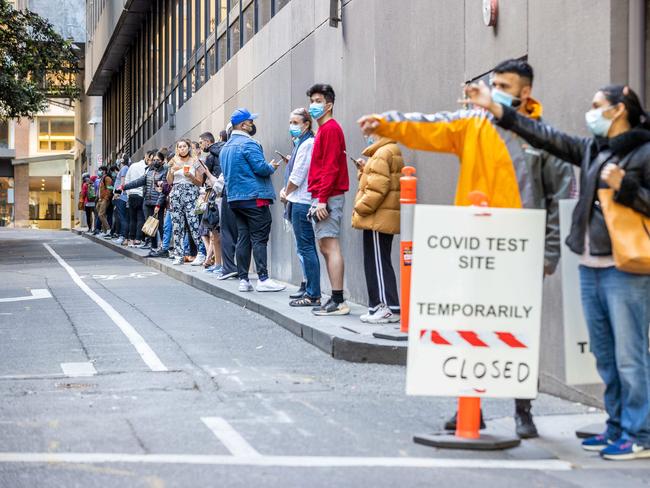
There are 37 cases of the Omicron variant in Victoria. Of those, 23 people acquired their infection overseas and 14 contracted it in Australia.
It comes as health officials on Wednesday released advice on alternative ways Victorians could host Christmas in person to reduce the spread of the highly transmissible Omicron variant.
“If you have symptoms, don’t go. Get a PCR test instead and stay isolated until you get a negative result,” chief health officer Brett Sutton said.
Professor Sutton encouraged those who didn’t have symptoms to take a rapid antigen test, which can be purchased from major supermarkets, before leaving home.
“Fewer faces and bigger spaces mean less risk. It‘s best to wear a mask when talking to people face-to-face,” he said.
“Keep note of who comes. Keep it short and keep it outdoors.
“This will prevent you from becoming a household contact who must quarantine for seven-plus days (because once someone has spent four hours with a case in a house, they are a household contact).”
HEALTH CHIEF BLASTS MODELLING
Chief Medical Officer Paul Kelly said modelling recently leaked was an example of “the worst case of all potential scenarios” – including if Omicron was as severe as the Delta variant, if there was no hospital surge capacity, no change on public health or social measures and a limited booster program.
“None of these five assumptions represent the likely state of events, let alone all of them together, therefore presenting that scenario as the likely scenario that will occur is highly misleading,” Professor Kelly said.
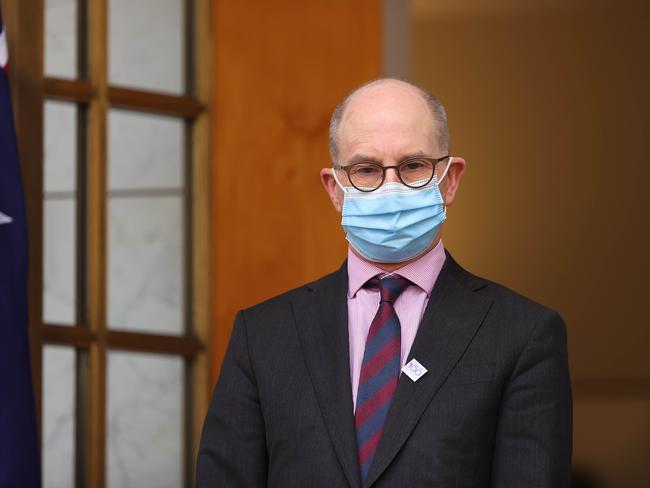
“Early indications around hospitalisation, ICU admission and death show that Omicron could be far less than Delta and other variants.
“Importantly, after almost four weeks of Omicron in Australia there are currently no confirmed Omicron cases in ICU and no deaths confirmed to date.”
He said there were simple measures people could take to reduce the impact, including mask wearing indoors and good hand hygiene.
“Omicron is here in Australia, it will be an unwanted guest with us for Christmas, but we can and must do what we can to reduce its impact on each of us and our loved ones,” Prof Kelly said.
More Coverage
Originally published as PM says interstate travellers don’t need to be tested after calling for use of masks



